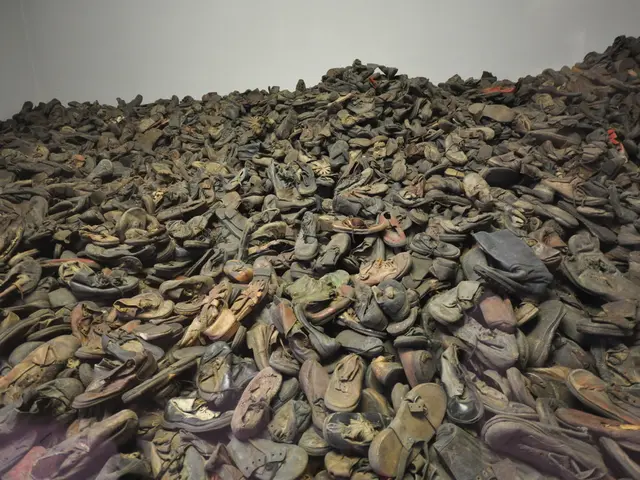U.S. President Trump raises doubts over broadcasting license grants
In a recent turn of events, the late-night talk show hosted by Jimmy Kimmel has been pulled from the schedules of several US broadcasters, including ABC and Sinclair. This decision, sparking a heated debate, has reignited the discussion about the boundaries of free speech and the role of media in a democratic society.
The controversy began following Jimmy Kimmel's comments about the death of right-wing activist Charlie Kirk, which were criticized as racist and sexist by many. The ABC network, in response, decided to pull Kimmel's show from its schedule "indefinitely."
This decision has been met with criticism from several prominent entertainers, such as Stephen Colbert, who have spoken out against the move and accused ABC of succumbing to pressure and threats from the Trump administration. Colbert described this as "brazen censorship."
The FCC chief, Brendan Carr, has been accused by critics of putting pressure on companies, with calls for his resignation being made. Carr, in a right-wing podcast, explained that companies should act with regard to Kimmel, stating that there would be "additional work for the FCC" if they did not.
The FCC grants licenses to TV and radio stations in the US, and each station is legally obligated to operate in the 'public interest, convenience, and necessity.' However, the line between public interest and free speech has become increasingly blurred in this case. Media companies are legally required to act in the public interest, or they will be held accountable under the law.
The Trump administration's actions against commentators have raised concerns about significant restrictions on press and freedom of speech. Observers warn that these actions could set a dangerous precedent and undermine the democratic principles that the US stands for.
Former Vice President and Democratic presidential candidate Kamala Harris has spoken out against the media's capitulation to government threats. Harris stated, "In the face of this frontal assault on free speech, we must not remain silent or be complicit."
The debate has also seen Trump welcome the suspension of Jimmy Kimmel's talk show and call for the cancellation of other shows he dislikes. Trump has long railed against journalists, often labeling them as "enemies of the people" and threatening to revoke the licenses of unwanted broadcasters.
The US President has also questioned the licenses of broadcasters following the provisional suspension of Jimmy Kimmel's talk show. This has led to speculation about potential future actions against other shows and broadcasters.
The Kimmel case has undoubtedly raised important questions about the balance between free speech, public interest, and the role of the media in a democratic society. As the debate continues, it is crucial to uphold the principles of freedom of speech and press, ensuring that the US remains a beacon of democracy.
Read also:
- United States tariffs pose a threat to India, necessitating the recruitment of adept negotiators or strategists, similar to those who had influenced Trump's decisions.
- Weekly happenings in the German Federal Parliament (Bundestag)
- Southwest region's most popular posts, accompanied by an inquiry:
- Discussion between Putin and Trump in Alaska could potentially overshadow Ukraine's concerns








